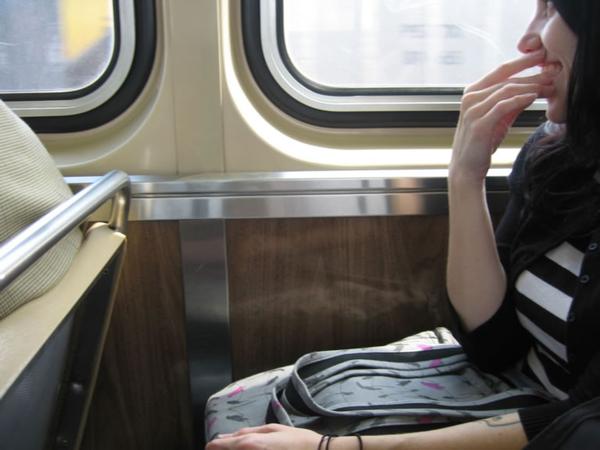
“Are you going to write in your book about the people who died? It is so depressing,” a person in the publishing world asked while I was writing Everything Changes. My answer: a polite version of “You better f***ing believe I am.”
How could I write a book about cancer and exclude the people who died and their families? Yep, it has its sad moments, but that’s why cancer sucks. That’s why we raise money for research. That’s why I write a blog and wrote a book, and promote young adult cancer organizations: all so we can support each other around the pissy hard times.
Charissa is an recent widow who I’ve become friends with. She is an incredible woman who I adore. (See her recent post Mourning As A Young Adult?) And I love my regular communication with a few different patients who are end-stage. The death aspect of other people’s cancer experiences does not freak me out. I don’t know why.
There are, however, many young patients barreling through illness who do choose to steer clear of relationships with end-stage patients and grieving partners. I do not judge these patients for giving a cold shoulder to death and hence a brush off to other patients and families facing it. The need to cocoon yourself from death when you are a young adult trying so hard to live does make sense to me. Plus, I have papillary thyroid cancer - a disease from which very, very few people die, so I’m never faced with the question of communicating with someone who is dying from my disease. Maybe it would make a difference to me… maybe not..
But let’s look at the other part of the equation: The patients and families who are facing death. They’re still part of our community. Cancer doesn’t end when you stop taking chemo. Cancer doesn’t end when you enroll in hospice. Cancer doesn’t end when your partner, who had lymphoma, has been dead for nine months.
Yet, I talk regularly to end-stage patients and grieving families who say they feel unwelcome in the young adult cancer world, from seemingly simple conversations where patients insist that everyone is a survivor and nobody is a victim, to feeling unable to express their fears of dying or phases of mourning in chat rooms, at conferences, and in support groups. That stinks. And it needs to change.
Have you ever avoided dying patients because they feel unhopeful to your own survival? If you’re end-stage, have you found support in the young adult cancer world and what do you want that you aren’t getting? If you are grieving, do you want to stay connected to the cancer community and how have you been received?
Read Everything Changes: The Insider’s Guide to Cancer in Your 20s and 30s. Spoiler alert: most of the people are still living but not all of ‘em.
![]()
![]()


 “Everything Changes is, without doubt, the most forthright, emotionally sophisticated, and plain-old valuable book of its kind I've seen.”
“Everything Changes is, without doubt, the most forthright, emotionally sophisticated, and plain-old valuable book of its kind I've seen.”












